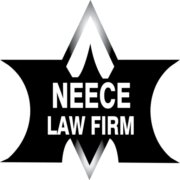Best Conveyancing Lawyers in North Carolina
Share your needs with us, get contacted by law firms.
Free. Takes 2 min.
Free Guide to Hiring a Real Estate Lawyer
Or refine your search by selecting a city:
List of the best lawyers in North Carolina, United States
About Conveyancing Law in North Carolina, United States
Conveyancing is the legal process of transferring ownership of real property from one person or entity to another. In North Carolina, the process is governed by unique state laws that set requirements for how property is bought, sold, and transferred. Whether you are purchasing a home, selling land, or transferring property as part of an estate settlement, conveyancing ensures that the transaction is legally sound and that ownership is properly recorded. North Carolina is known as an "attorney state," meaning that a licensed attorney must be involved to conduct real estate closings, making the legal process even more significant.
Why You May Need a Lawyer
There are several situations in which having a lawyer for conveyancing in North Carolina is essential or highly beneficial. These may include:
- Buying or selling residential or commercial real estate
- Refinancing a mortgage or home equity loan
- Transferring property as part of a divorce, inheritance, or gift
- Handling disputes over boundaries, easements, or liens
- Addressing title issues or problems found in a title search
- Ensuring compliance with local, state, and federal property laws
- Preparing or reviewing contracts and settlement statements
- Identifying and resolving tax implications from property transfers
Given North Carolina’s legal requirements and the substantial financial investment involved in real estate, a lawyer can help protect your interests and avoid costly mistakes.
Local Laws Overview
Conveyancing in North Carolina is governed by both state statutes and local county procedures. Notable aspects of local laws include:
- Attorney Requirement - North Carolina requires a licensed attorney to conduct closings, which includes the preparation and review of legal documents and overseeing the disbursement of funds.
- Title Search - An attorney must perform a title search to ensure that the seller owns clear title to the property and to identify any liens, judgments, or other encumbrances.
- Deed Recording - All property transfers must be recorded at the Register of Deeds in the county where the property is located for the transaction to be legally binding and to protect ownership rights.
- Disclosure Requirements - Sellers are typically required to provide certain disclosures about the condition of the property, such as the Residential Property and Owners' Association Disclosure Statement and Mineral and Oil and Gas Rights Disclosure.
- Settlement Practices - North Carolina practices "Good Funds Settlement," requiring funds to be available and verified before the deed is recorded and the transaction is deemed final.
- Excise Tax - The state imposes an excise tax on most real property transfers, calculated based on the sales price of the property.
These laws are intended to protect all parties in a transaction and to ensure the legal integrity of the transfer process.
Frequently Asked Questions
What is the role of an attorney in a real estate closing in North Carolina?
A real estate attorney prepares and reviews all legal documents, performs the title search, resolves legal issues, oversees the closing, and ensures funds are properly disbursed and the deed is recorded.
Can I handle my own real estate closing in North Carolina?
No. North Carolina law requires that a licensed attorney conduct the closing when real estate is being transferred.
What is a title search and why is it important?
A title search is an examination of public records to verify the legal ownership of the property and to discover any claims, liens, or encumbrances that may affect the transfer of ownership.
How is the deed recorded in North Carolina?
After closing, the attorney files the deed and other necessary documents with the Register of Deeds in the county where the property is located. This recording establishes the new ownership public record.
Are property disclosures required when selling a home?
Yes. Sellers must provide disclosures regarding the property’s condition and any known issues as required by state law, except for certain exempt transactions.
What are closing costs in a North Carolina real estate transaction?
Closing costs include attorney fees, title search, recording fees, county excise taxes, lender fees, and other charges associated with finalizing the property transfer.
How are disputes over property boundaries or title resolved?
Disputes are typically handled by real estate attorneys, who can negotiate settlements, clear title defects, or represent clients in court if necessary.
What is a Good Funds Settlement in North Carolina?
Funds used in real estate closings must be available and cleared before recording the deed. This ensures that all parties receive payment and legal documents are properly handled.
Is an inspection required before a property sale?
While not required by law, inspections are highly recommended and may be required by lenders to uncover potential issues before purchase.
What happens if there is a lien on the property?
Liens must be satisfied before or at closing. The attorney will coordinate payment and ensure the lien is released before transferring ownership.
Additional Resources
The following resources and organizations can provide more information and assistance regarding conveyancing in North Carolina:
- North Carolina State Bar - Real Property Section
- North Carolina Department of Justice - Consumer Protection Division
- North Carolina Real Estate Commission
- Register of Deeds offices in each North Carolina county
- Local bar associations for lawyer referrals
- HUD - U.S. Department of Housing and Urban Development for consumer guides
Next Steps
If you are planning to buy, sell, or transfer property in North Carolina, consider taking the following steps:
- Consult with a North Carolina real estate attorney early in the process to understand your rights and responsibilities
- Gather all relevant documents, including prior deeds, surveys, and disclosure forms
- Request a title search and address any issues that arise
- Communicate clearly with all parties, including real estate agents, lenders, and your lawyer
- Ensure all funds are available and confirmed prior to closing
- Carefully review and understand the settlement statement prior to closing
Engaging a qualified attorney is a crucial step in completing a smooth and legally compliant real estate transaction in North Carolina. If you need legal assistance, reach out to a licensed real estate attorney in your area for guidance tailored to your specific situation.
Lawzana helps you find the best lawyers and law firms in North Carolina through a curated and pre-screened list of qualified legal professionals. Our platform offers rankings and detailed profiles of attorneys and law firms, allowing you to compare based on practice areas, including Conveyancing, experience, and client feedback.
Each profile includes a description of the firm's areas of practice, client reviews, team members and partners, year of establishment, spoken languages, office locations, contact information, social media presence, and any published articles or resources. Most firms on our platform speak English and are experienced in both local and international legal matters.
Get a quote from top-rated law firms in North Carolina, United States — quickly, securely, and without unnecessary hassle.
Disclaimer:
The information provided on this page is for general informational purposes only and does not constitute legal advice. While we strive to ensure the accuracy and relevance of the content, legal information may change over time, and interpretations of the law can vary. You should always consult with a qualified legal professional for advice specific to your situation.
We disclaim all liability for actions taken or not taken based on the content of this page. If you believe any information is incorrect or outdated, please contact us, and we will review and update it where appropriate.
Browse conveyancing law firms by city in North Carolina
Refine your search by selecting a city.













